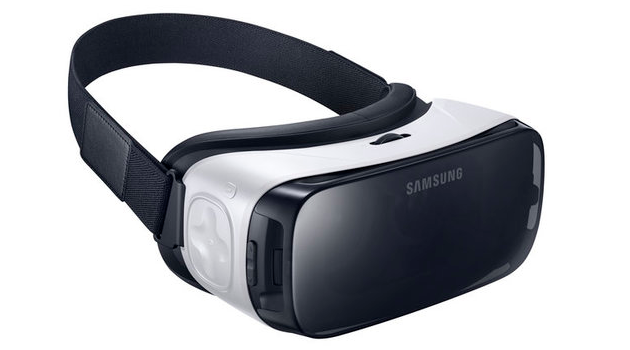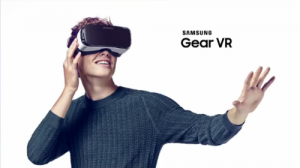It’s the moment we’ve all been waiting for. Oculus VR launches its first consumer virtual reality (VR) head-mounted display (HMD) this week. But it’s not the Oculus Rift, far from it in fact. While the biggest gun in VR remains on the sidelines for a few more months the VR specialist is launching the Gear VR mobile-based HMD with Samsung in the US this Friday, 20th November. It may not boast the power of the Oculus Rift but the Gear VR is no less promising thanks to its cost, build quality and the past year of support it’s already seen on behalf of the Innovator’s Editions.
But, with major console and PC-based HMDs now just months from launching, is now the right time for Gear VR?
After such a long wait for the arrival of consumer HMDs, the next few months are going to be something of a whirlwind of releases. Following Oculus VR and Samsung’s debut this week, Valve and HTC’s Vive PC-based HMD is expecting a limited launch before the end of the year, followed by a full release in Q1 2016. The Oculus Rift will also arrive in this window, with PlayStation VR rounding up the releases in H1 2016. It’s set to be an insanely busy time for the industry and something that fans likely won’t experience again for some time.
It’s easy to see the Gear VR drowning in this busy period. It’s the most impressive mobile-based HMD right now by some way but the experience the device offers is still limited when compared to the likes of a full blown, positioned-tracked PC-based title. The HTC Vive lets you stand up, walk around, reach out, duck and more with its Room Scale tracking, while Gear VR takes fans back to the days of the Oculus Rift’s first development kit (DK1). It’s to Oculus VR and Samsung’s credit that the experience is so polished that some even prefer it to the second development kit (DK2), but Gear VR simply can’t stand up next to anything from the Crescent Bay prototype of the Oculus Rift and above.
But to write the Gear VR off because bigger things to come would undermine the kit’s true purpose and potential. The brilliant $99 USD price point for the device tells you all you need to know about what Samsung and Oculus VR want for the device. This is to be many people’s jumping-on point for the technology as a whole, something that Oculus VR no doubt hopes many will test the waters of VR with before going all-out on an Oculus Rift later down the line. And while getting Oculus-worthy PCs out to retail units to demo across the US may prove challenging, the simplicity of setting up a 2015 Galaxy smartphone with a Gear VR gives it a unique marketing edge.
You might look at the major HMDs coming our way shortly and wonder why anyone would bother with Gear VR, then, but that’s a somewhat narrow-minded train of thought. Enthusiasts are rightly excited about the upcoming devices and will be what fuel their first few months and perhaps even years of existence. For everyone else Gear VR is a far more viable purchase right now, pending that they own one of Samsung’s popular handsets. Granted, that leaves out a large part of the population.
Anyone that’s concerned about Gear VR might also want to take a look at Greenlight VR’s recent study, which revealed that, of all HMDs mentioned along with Google Cardboard and Mattel’s new View-Master, Gear VR had the third highest unaided awareness rate behind PlayStation VR and Oculus Rift. It was also the second highest for aided awareness behind PlayStation VR. This might not be as niche a device as some might have considered, then. At least not in the context of other HMDs anyway.
Gear VR ultimately has legs as an engaging, affordable peripheral for a popular brand of smartphones. It’s too early to tell exactly how well it will perform stacked up next to its high-end friends, but there’s little reason to be concerned about the device’s immediate future.
-END-
The post VR vs. Gear VR’s Launch – Is the Timing Right for Mobile VR’s Arrival? appeared first on VRFocus.
















